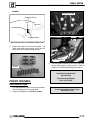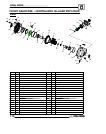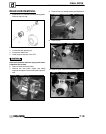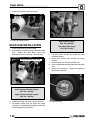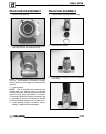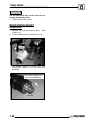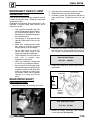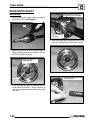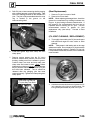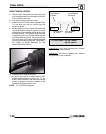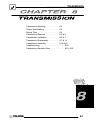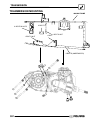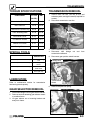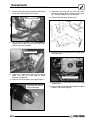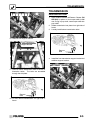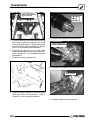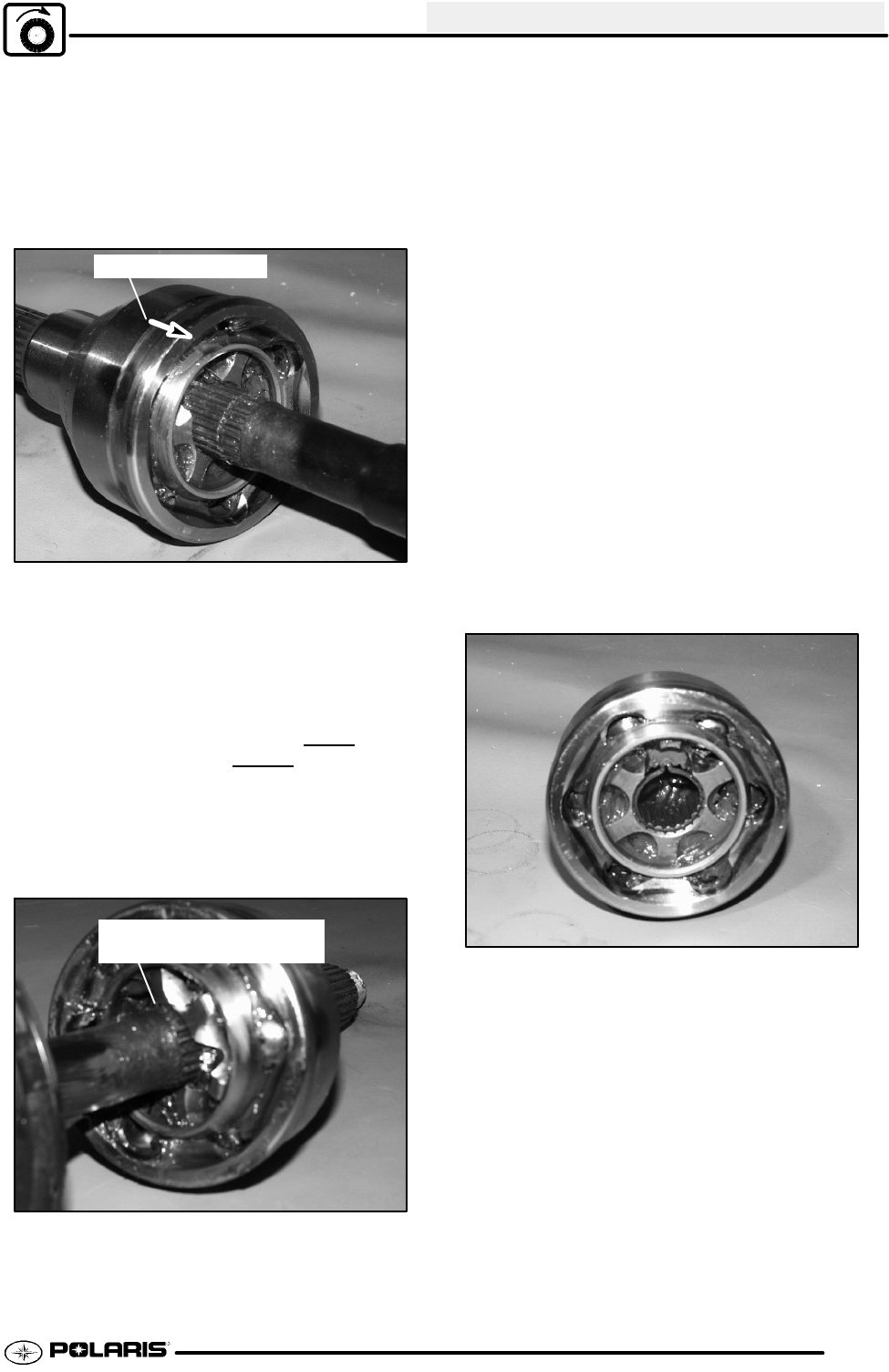
FINAL DRIVE
7.25
5. Refit CV joint on interconnecting shaft by tapping
with a plastic hammer on the joint housing. Take
care not to damage threads on the outboard CV
joint. The joint is fully assembled when the snap
ring is located in the groove on the
interconnecting shaft.
Tap joint onto shaft
6. Install and tighten large boot clamp with boot
clamp pliers.
7. Remove excess grease from the CV joint’s
external surfaces and position joint boot over
housing, making sure boot is seated in groove.
Position clamp over boot end and make sure
clamp tabs are located in slots. Note:
Before
tightening boot clamp on inboard
joint, make sure
any air pressure which may have built up in joint
boot has been released. The air should be
released after the plunging joint has been
centered properly. Tighten boot clamp using boot
clamp pliers.
Open snap ring and pull
CV joint away from shaft
(Boot Replacement)
1. Remove CV joint from end of shaft.
2. Remove boot from shaft.
NOTE: When replacing a damaged boot, check the
grease for contamination by rubbing it between two
fingers. A gritty feeling indicates contamination. If
the grease is not contaminated, the boot can be
replaced without cleaning the CV joint. Use the
recommended amount of grease for boot
replacement only (see below). Proceed to Boot
Installation.
(CV JOINT CLEANING / REPLACEMENT)
3. Thoroughly clean and dry the CVjoint and inspect
ball tracks and cages for wear, cracks or other
damage.
NOTE: Shiny areas in ball tracks and on the cage
spheres are normal. Do not replace CV joints because
parts have polished surfaces. Replace CV joint only
if components arecracked, broken, worn or otherwise
unserviceable.
4. Add the recommended amount of grease for CV
joint cleaning to the joint as shown below. Be
sure grease penetrates all parts of the joint.



